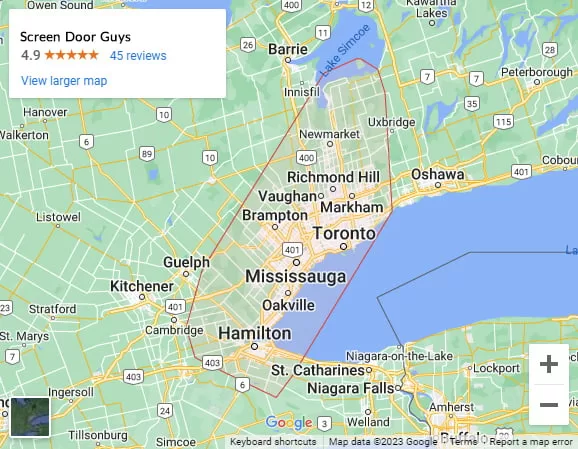The Canadian Foundation for Labour Rights: Protecting and Advancing Workers’ Freedoms in Canada
The Canadian Foundation for Labour Rights (CFLR) is a national research and education organization dedicated to defending and promoting the rights of workers across the country. Established to address growing challenges to collective bargaining, freedom of association, and union rights, CFLR works to ensure that Canada’s workplaces remain fair, equitable, and respectful of human rights.
In a time when workplace dynamics are changing faster than ever — from the rise of remote work to automation and shifting employment laws — the role of organizations like CFLR is crucial. Whether you’re a union member, an employer, or simply a concerned citizen, understanding the mission and impact of CFLR helps you see how labour rights affect everyday life in Canada.
What is the Canadian Foundation for Labour Rights?
The CFLR is a non-profit advocacy and research group focused on preserving and expanding workers’ rights as enshrined in the Canadian Charter of Rights and Freedoms and international labour conventions. It provides:
- Legal research on labour law and collective bargaining rights.
- Public education through workshops, publications, and awareness campaigns.
- Policy advocacy to influence governments and lawmakers.
- Support for unions and workers facing legal challenges related to workplace rights.
Its work spans all provinces and territories, ensuring that Canadians from Ontario to British Columbia have access to strong legal protections in the workplace.
Why Labour Rights Matter in Canada
Labour rights aren’t just about wages and benefits — they influence everything from workplace safety to economic stability. Some key reasons why labour rights are essential include:
- Fair wages that keep pace with the cost of living.
- Safe working conditions, particularly in industries like construction, manufacturing, and healthcare.
- Freedom of association so workers can form or join unions without intimidation.
- Collective bargaining rights to negotiate fair contracts.
Without strong protections, workers are vulnerable to exploitation, unsafe workplaces, and unfair treatment.
Key Areas of Focus for CFLR
1. Defending Collective Bargaining Rights
Collective bargaining is the process by which workers, through their unions, negotiate with employers for better wages, benefits, and working conditions. CFLR provides legal support and research to protect these rights from legislative rollbacks.
2. Advocating for Legislative Change
CFLR actively monitors and challenges laws that limit workers’ rights. In Ontario, for example, legislation like Bill 124, which capped wage increases for public sector workers, was met with widespread criticism from labour groups.
3. Education and Awareness
Through reports, public speaking, and online resources, CFLR helps Canadians understand the importance of labour rights — not just for union members, but for the broader economy and society.
Labour Rights in Ontario: A Snapshot
Ontario’s labour laws are governed by the Labour Relations Act, Employment Standards Act, and various sector-specific regulations. Some notable rights include:
- Right to join a union without employer interference.
- Protection against unfair dismissal in unionized workplaces.
- Standards for minimum wage, overtime pay, and vacation entitlements.
CFLR plays a role in ensuring these rights are not eroded, especially during economic downturns or when governments seek to cut costs.
Challenges Facing Canadian Workers Today
Even with legal protections in place, Canadian workers face a number of challenges:
- Precarious employment — Short-term contracts and gig work often lack benefits and stability.
- Wage stagnation — While living costs rise, wages in many sectors have not kept pace.
- Workplace automation — Technology is replacing certain jobs, leading to retraining needs.
- Legislative rollbacks — Governments may introduce laws limiting bargaining power or restricting strikes.
CFLR addresses these issues by providing research-based solutions and advocating for stronger worker protections.
The Role of Unions in Protecting Rights
Unions are often the first line of defence for employees facing workplace disputes, unfair treatment, or unsafe conditions. CFLR collaborates with unions to ensure they have the legal and policy tools necessary to represent their members effectively.
This partnership extends to helping unions challenge unconstitutional laws in court, setting precedents that protect workers nationwide.
CFLR and International Labour Standards
Canada is a signatory to several International Labour Organization (ILO) conventions, which set global standards for worker rights. CFLR ensures Canadian laws align with these international obligations, especially in areas like:
- Freedom of association.
- Elimination of forced labour.
- Equality and non-discrimination in employment.
How CFLR Supports the Public
CFLR isn’t just for unions — it benefits all Canadians by:
- Educating the public on their workplace rights.
- Providing free resources and publications.
- Offering expert analysis for journalists, students, and policymakers.
For families, this means greater job security, better work-life balance, and safer working conditions for loved ones.
Everyday Examples of Labour Rights in Action
Labour rights influence daily life in ways you might not expect. For example:
- Paid parental leave is possible because of workplace standards and advocacy.
- Safety equipment requirements protect construction workers from injury.
- Break times and work-hour limits prevent overwork and exhaustion.
Even small businesses benefit — when employees feel secure and respected, productivity and morale increase.
Community Connection: Supporting Local Trades
Labour rights extend beyond large unions and factories — they impact small, local service providers too. For example, if you’re looking for screen door repair in Toronto, it’s worth choosing a business like Screen Door Guys, which values fair wages, safe working conditions, and quality service. Supporting companies that respect worker rights helps strengthen the broader labour movement.
How to Support the Canadian Foundation for Labour Rights
If you want to get involved, you can:
- Donate to help fund research, legal challenges, and public education campaigns.
- Share resources from CFLR’s website with friends, family, and colleagues.
- Attend events and workshops to learn more about workplace rights.
- Advocate to your local representatives about protecting and expanding labour rights.
Related Topics
For further reading and authoritative references on labour rights in Canada:
- International Labour Organization (ILO) – Canada Profile — Canada’s commitments to international labour standards.
- Government of Canada – Labour Program — Federal laws and programs that protect Canadian workers.
- Ontario Ministry of Labour, Immigration, Training and Skills Development — Official resources on workplace standards in Ontario.
- Charter of Rights and Freedoms – Justice Laws Website — The legal foundation for freedom of association and workplace rights.
Conclusion
The Canadian Foundation for Labour Rights plays an essential role in protecting and promoting workplace freedoms across Canada. From challenging unjust laws to educating the public, CFLR ensures that the rights of workers remain a cornerstone of Canadian society.
For Canadian families, strong labour rights mean more than fair pay — they mean safety, stability, and a better quality of life. By supporting organizations like CFLR and choosing to work with businesses that respect their employees, we can all contribute to a stronger, fairer Canada.


